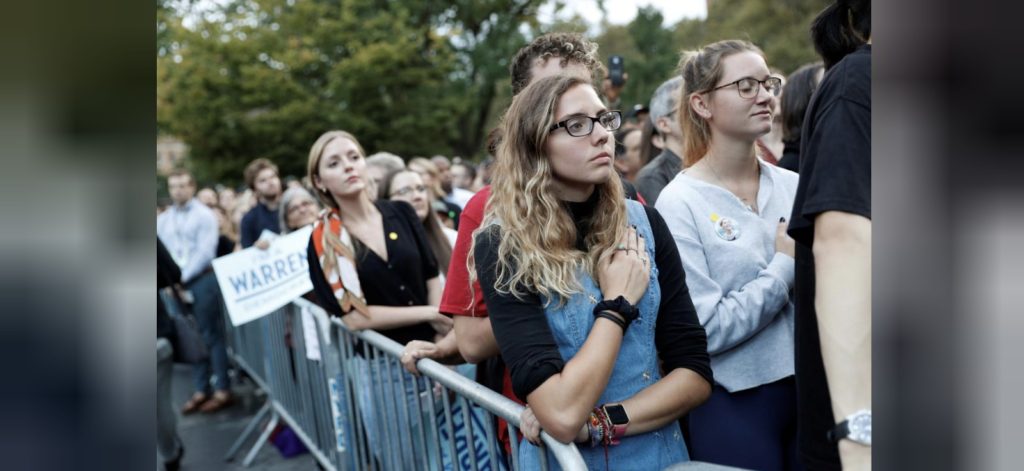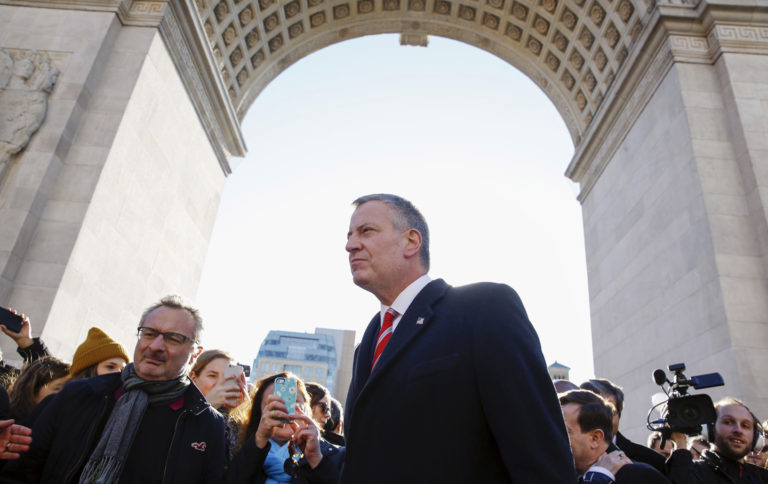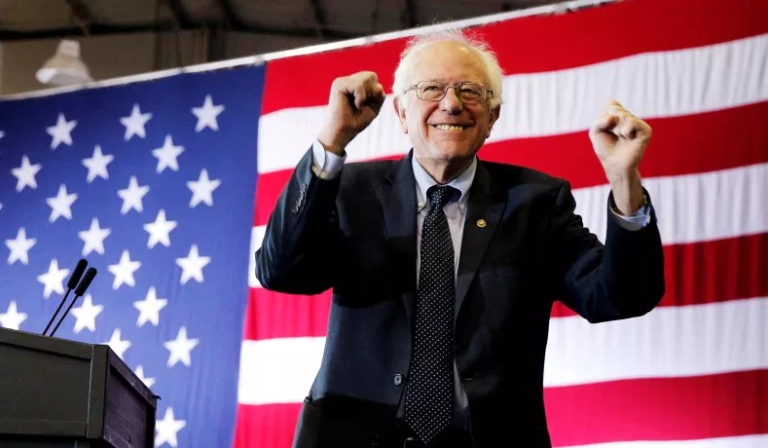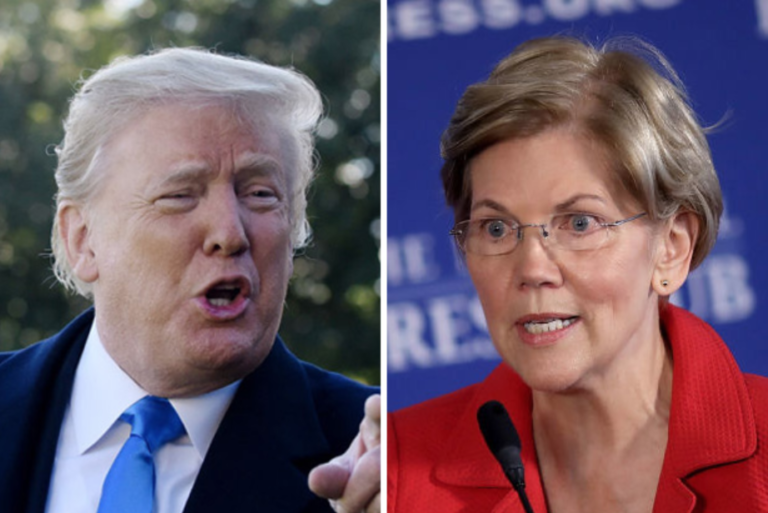
Photo of myself during the Elizabeth Warren rally in Washington Square Park on September 16th, 2019. / “People listen as U.S. Senator and democratic presidential candidate Elizabeth Warren speaks at Washington Square Park in New York, New York, U.S. September 16, 2019.
After reading the New York Times article, “Elizabeth Warren is Completely Serious”, I knew who I was voting for. Yes, Warren has a plan for everything, but that’s what any presidential candidate should have. Then, upon hearing Warren speak at the Washington Square Park rally on September 16th, I was ready to run to the polls. I grew up around family and friends that mostly provided one-sided, right-leaning views on issues. I knew what I cared about – climate change, human rights, and other social issues – but I didn’t understand the economic implications to help aid these causes nor did I understand why those around me would only vote for their respective economic interests.
What sets Warren apart is her political background and her years as a Republican. As someone who grew up in a battleground district of a red-state, I was continuously struggling to place myself on the political spectrum. As Warren started becoming involved in politics, she was obsessed with economic policy while studying bankruptcy data. When she analyzed individual cases of bankruptcy, she changed her perspective. One of her former students and mentees said that during this study of individual cases, Warren, “was presented with information contrary to her worldview and adopted it”.

“U.S. Senator and democratic presidential race candidate Elizabeth Warren speaks at Washington Square Park in New York, New York, U.S. September 16, 2019. Photo courtesy of REUTERS/Lucas Jackson
After working on reforming the bankruptcy code for a federal commission in the 1990s, Warren decided to break from her nonpartisanship approach. While her economic views were conservatively driven, Warren avoided deep party ties before her individual case study. Warren created the Consumer Financial Protection Bureau and continued her fight to limit the consumer’s availability to file for bankruptcy, but this time with the Democratic Party on her side. With this, Warren became involved in the heart of American politics. Nevertheless, her ideological change was not an effect of running for office but rather a mere step on her road to political involvement.
It is clear that Warren is willing to learn and adapt as she tackles tough issues. Compared to other 2020 Democratic candidates, Warren has a background and method of analysis that allows her to see things from both sides of the aisle. As the nation becomes more polarized, effective use of compromise is an increasingly desirable skill in a president. In his farewell address, George Washington warned against the power of political parties and the divide their fervor could create within our nation. Although I am a proud supporter of the Democratic Party, I believe that party divisions can do more harm than good. Because of Warren’s past as a Republican, I trust her to be a president that can work effectively with conservative-leaning lawmakers. Warren embodies political understanding rather than party-line rigidness.
“The story of Warren’s awakening—from a true believer in free markets to a business-bashing enforcer of fair markets; from a moderate Republican who occasionally missed an election to one of the most liberal senators in America vying to lead the Democratic Party—breaks the mold of the traditional White House contender and is key to understanding how she sees the world: with a willingness to change when presented with new data, and the anger of someone who trusted the system and felt betrayed.”
I see part of myself in Warren. She uses the facts presented to her to form her opinions rather than using the opinions around her to create facts: a common practice in modern-day politics. Her conservative tendencies were rooted in economic policy, not social issues because she was trying to use the data to understand the issue of bankruptcy claims and find a solution. Senator and presidential candidate, Elizabeth Warren, gives me hope because I trust her to use the facts, fight for a solution, and create big structural change.
Tori Bianco
Tori Bianco, one of the co-directors of the Politics Society editorial, In the Zeitgeist, is a junior in CAS. She is double majoring in International Relations and Spanish. Outside of the classroom, she plays for the NYU Women’s Soccer team and is a member of Zeta Tau Alpha. In her home state of Nebraska, she is involved with two non-profits. One, Secondhand Support Inc, which she founded with her dad and sister, helps donate athletic equipment to underprivileged areas and promotes education for girls. The other is called Launch Leadership. Through Launch, she helps facilitate camps that foster leadership in high school and middle school students.



